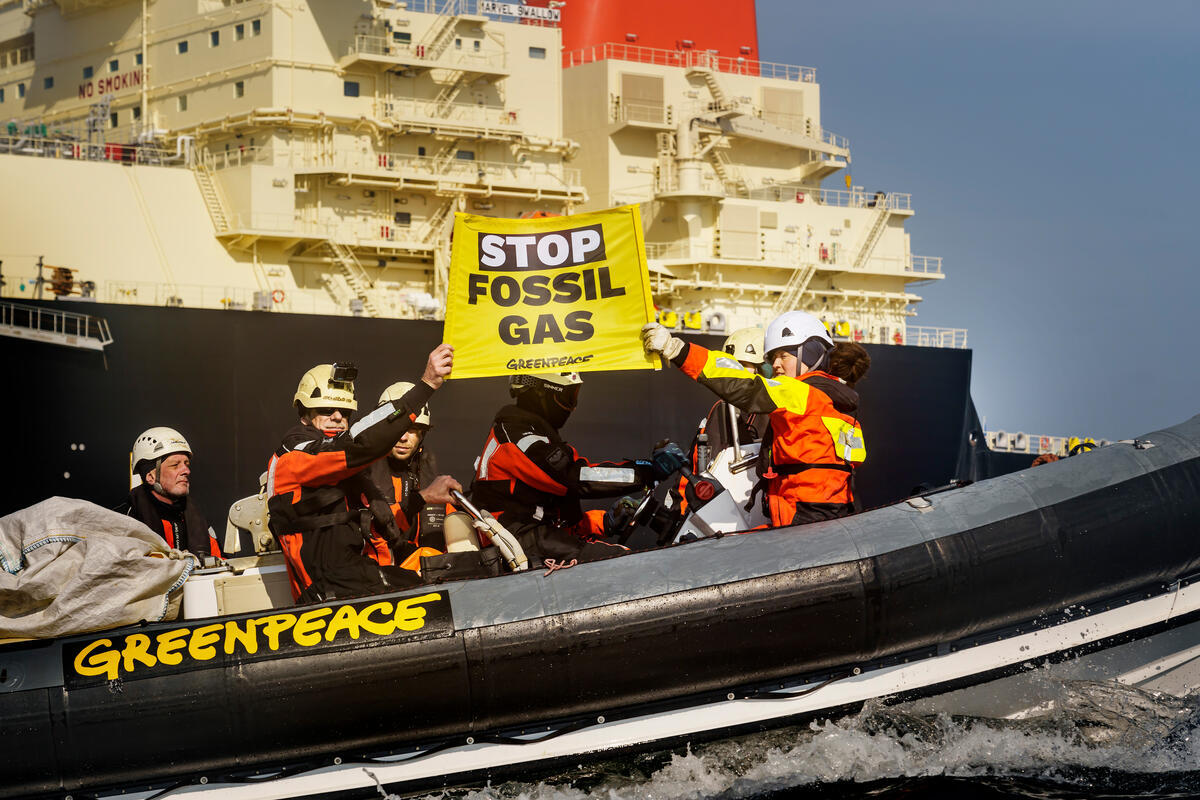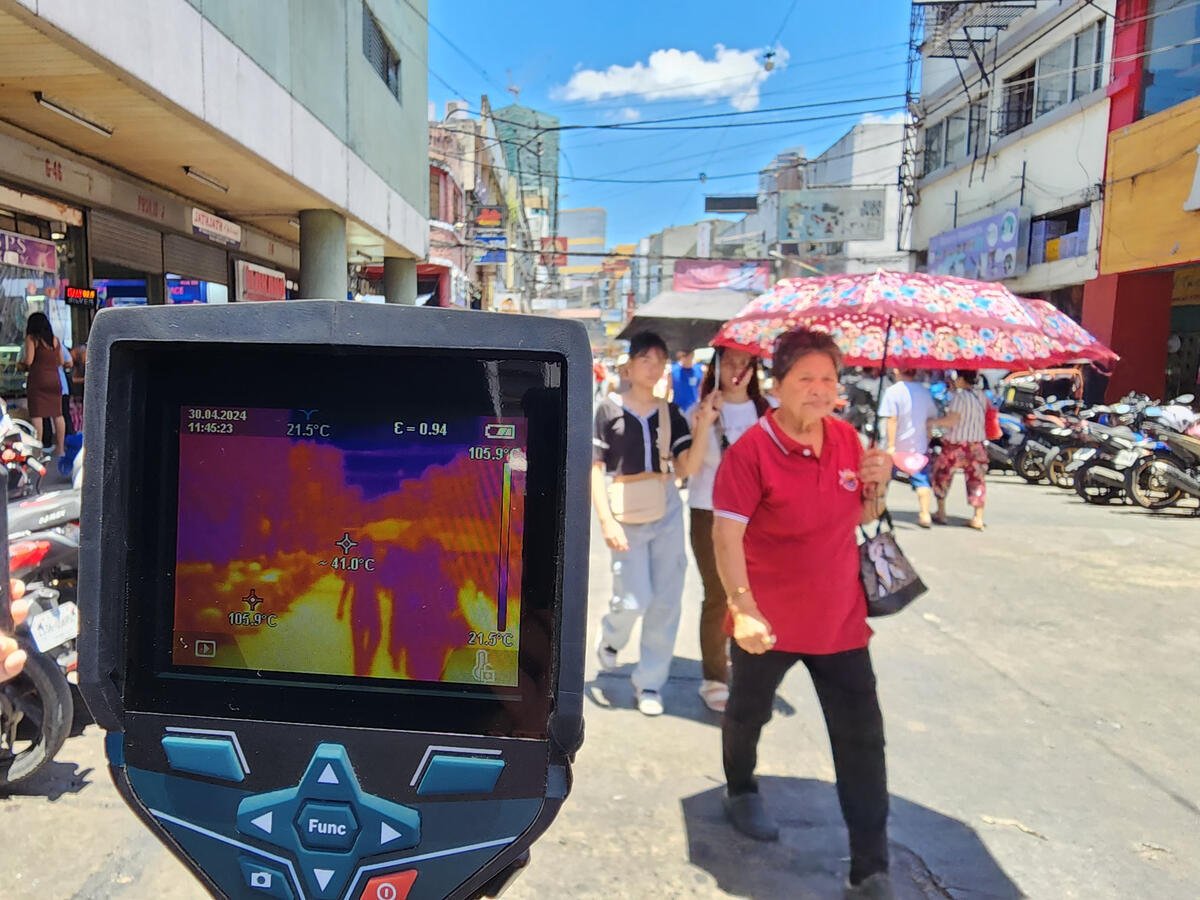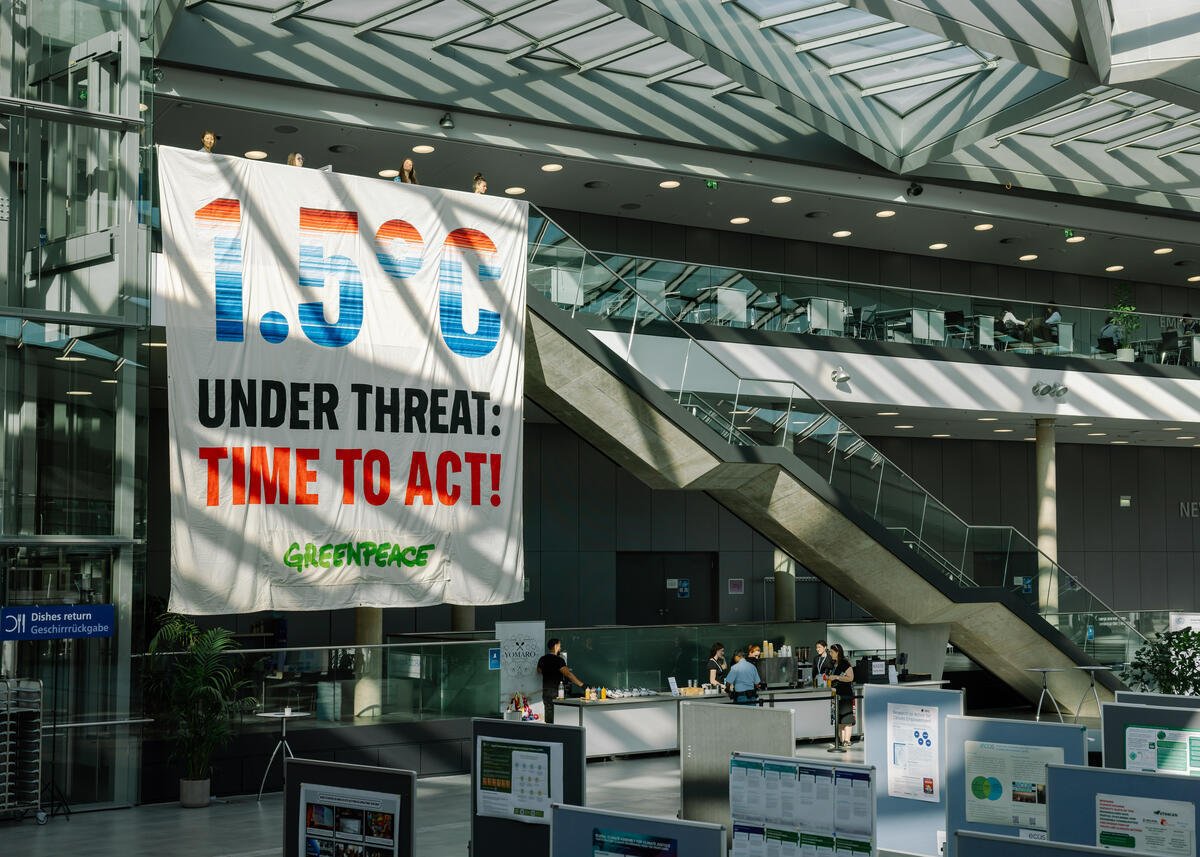Frankfurt, Germany – The carbon footprint of the global car industry equalled 9% of annual global greenhouse gas emissions in 2018, according to a new Greenpeace report [1]. The analysis provides a critical account of the role automakers play in fueling climate change.
The report, “Crashing the climate: How the car industry is driving the climate crisis” looks at the world’s 12 leading car companies and their climate impacts. [2] Of the “dirty dozen” automakers, the report finds that Volkswagen is the worst emissions offender and that Renault Nissan, Toyota, General Motors, and Hyundai-Kia round out the top five most polluting companies in the industry.
“We are in a climate emergency and still car manufacturers are driving the climate in a terrifying direction. The car industry’s 2018 carbon footprint exceeded EU greenhouse gas emissions. Volkswagen was the worst culprit — exceeding Australia’s emission alone — which was followed by Renault-Nissan, Toyota, General Motors, and Hyundai-Kia,” said Insung Lee, Climate Campaigner at Greenpeace East Asia.
According to these findings, the rapidly growing market share of larger heavier models like sports utility vehicles (SUVs), is driving up emissions. In Europe, the market share of SUVs increased more than fourfold over the past 10 years – from 8% in 2008 to 32% in 2018, while total SUV sales in the US reached almost 70% in 2018 [3]. Despite automakers rolling out hybrid cars, the report concludes that this has done little to reduce greenhouse gas emissions at the level required.
Benjamin Stephan, Transport and Climate Campaigner at Greenpeace Germany said: “Trying to improve the efficiency of the internal combustion engine more and promoting hybrids are nothing but band-aid solutions in this climate emergency. The car industry is simply not phasing out the internal combustion engine fast enough, and their inaction around providing real solutions greatly limits people’s freedom to choose transportation that’s greener, cleaner and safer for the climate.”
The report is being released ahead of the International Motor Show, IAA, in Frankfurt, where global car manufacturers and politicians will be attending the world’s largest car exhibition. On 14 September Greenpeace and other groups will join together to hold a rally where thousands are expected to march and cycle to the entrance of the Motor Show, demanding a rapid transition towards sustainable transport [4].
To meet the Paris Agreement goal of 1.5°C, Greenpeace is calling on all major automakers to urgently phase-out diesel and petrol cars, including hybrids, by no later than 2028. Additionally, the car industry must build smaller and more energy-efficient electric vehicles and do so in a sustainable manner while moving beyond producing ever more cars into the future.
ENDS
Notes:
[1] The report is a joint publication by Greenpeace East Asia (Seoul) and Greenpeace Germany.
[2] The companies’ carbon footprints are the lifecycle emissions of the cars they sold in 2018. To calculate the carbon footprint global sales data, fleet emissions data, as well as the data on production, recycling and upstream fuel emissions were used. Please see Chapter 3 of the report for more details on the methodology.
[3] https://fred.stlouisfed.org/series/ALTSALES/
[4] https://www.iaa-demo.de/english
Full report here
Executive summary here
Contacts:
Lauren Reid, International Communications Lead, Clean Air Now, Greenpeace Belgium: +44 7367 074602, [email protected]
Benjamin Stephan, Transport and Climate Campaigner, Greenpeace Germany: +49 1577 1941527, [email protected]
Greenpeace International Press Desk, [email protected], phone: +31 (0) 20 718 2470 (available 24 hours)
For Greenpeace International press releases, follow us on twitter @greenpeacepress



